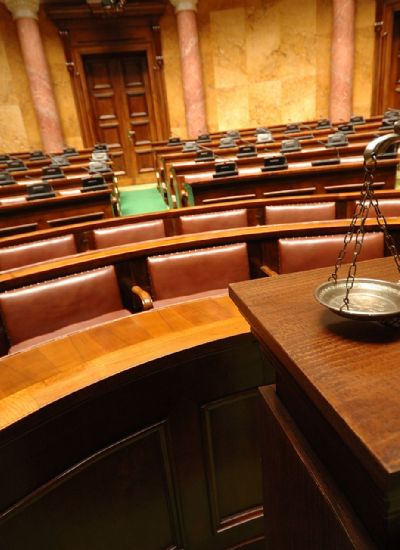Writers in the History of English Literature
- The Anglo-Saxons created literature in what scholars call Old English between the seventh and 12th centuries. Court poets called scops composed heroic epics that retold tribal history and tradition such as "Beowulf." "Beowulf" blends pagan and Christian elements and celebrates honor, courage and loyalty. Christian poets such as Caedmon and Cynewulf wrote about their belief in a relatively unsophisticated form of Christianity. The ninth century king Alfred the Great had many Latin texts translated and encouraged new works in Old English. Anglo-Saxon prose consisted primarily of religious, informational and educational material.
- In 1066, the Normans, French-speaking descendants of the Vikings, conquered England. England's Norman aristocracy created what scholars call Anglo-Norman literature between 1100 and 1250. Anglo-Norman literature primarily consisted of biographies, histories and sermons called homilies. Prominent Anglo-Norman authors include the historian Geoffrey Gaimer, famous for his two-volume history of England, "Histoire de Bretons" and "Estorie de Engles"; the poet Philip de Thaun, best known the allegory "Bestiaire"; and the poet Thomas of Britain who told the legend of Tristan and Isolde in his poem "Tristan."
- Geoffrey Chaucer is considered one of the greatest poets of the Middle Ages.Photos.com/Photos.com/Getty Images
Middle English developed between the 12th and 14th centuries. Important authors include the anonymous poet who wrote "Sir Gawain and the Green Knight," John Gower and Geoffrey Chaucer. "Sir Gawain and the Green Knight" is considered one of the finest English poems about King Arthur. John Gower wrote the allegory "Speculum Meditantis," a commentary on the Peasant's Revolt called "Vox Clamantis" and a collection of stories about the seven deadly sins called "Confessio Amantis." Geoffrey Chaucer, one of England's greatest poets, is best known for "The Canterbury Tales," his commentary on English society. - Sir Thomas Malory created a well known version of the legend of King Arthur.Photos.com/Photos.com/Getty Images
In 1485, Henry VII established the Tudor Dynasty, which included Henry VIII, Edward VI, Mary I and Elizabeth I. Their rule coincided with William Caxton's introduction of the printing press, which helped standardize English. Thomas Malory's retelling of the King Arthur legend, "Le Morte d'Arthur," is considered one of the most significant works of this era. Other major writers include Sir Thomas Wyatt, who helped popularize the sonnet; Thomas Churchyard, author of "Wofull Warres in Flaunders" and "General Rehearsal of Warres"; and Edmund Spenser, author of the allegorical epic "The Faerie Queen." - Shakespeare's plays have sparked the imaginations of actors from Richard Burbage to Kenneth Branagh.Photos.com/Photos.com/Getty Images
The reigns of Elizabeth I and James I produced a number of important playwrights. Christopher Marlowe was the first English playwright to write significant tragedies. His most famous works are "Tamburlaine the Great," "The Jew of Malta" and "Doctor Faustus." Ben Jonson is is best known for his satirical comedies such as "Volpone, or the Fox," "Epicoene, or the Silent Woman" and "The Alchemist." William Shakespeare wrote dozens of plays such as "Romeo and Juliet," "Hamlet," "Macbeth" and "The Tempest" that have engaged the imagination for hundreds of years.




















